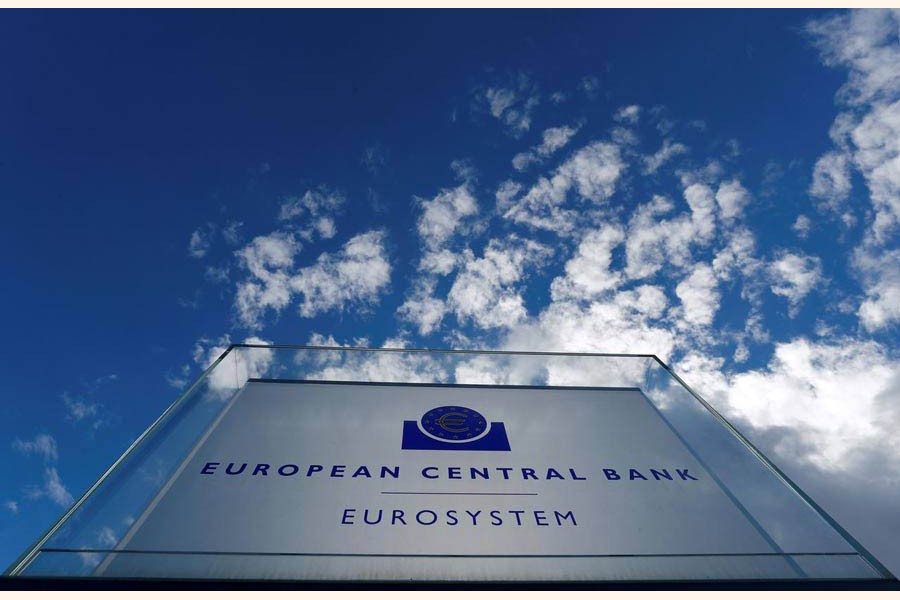
Published :
Updated :

The European Central Bank (ECB) is set to unveil fresh stimulus measures on Thursday to prop up the ailing euro zone economy, but its exact moves are far from certain and a decision that underwhelms markets risks pushing up borrowing costs, reports Reuters.
With other major central banks easing monetary policy, Germany at risk of recession and inflation expectations sliding, ECB President Mario Draghi has all but promised more support, putting all of the bank's remaining tools in play.
But Draghi, who hands over the leadership of the central bank to Christine Lagarde at the end of October, will face resistance from more conservative members of the ECB's Governing Council.
Some policymakers have voiced concerted, public opposition to more radical stimulus measures, particularly the restarting of bond purchases, known as quantitative easing or QE.
There is also the risk that Draghi's dovish talk has raised investors' expectations so high that it will be difficult to fully deliver, leaving them disappointed. That could see market interest rates and the euro's exchange rate increase, rather than fall.
"There is high uncertainty about the extent of the expansionary measures the ECB will implement today; and therefore there is large potential for strong fluctuations in the euro exchange rates," Commerzbank strategists wrote in a note to clients.
Factbox: Key ECB policymaker comments ahead of Thursday's rate meeting
Hours before the announcement, the weakness of the economy was evident in data that showed euro zone industrial production falling for the second month in a row in July. Germany's Ifo institute meanwhile predicted a recession would hit Europe's largest economy in the third quarter.
The single currency EUR= has fallen 3.5 per cent against the dollar since the ECB began signaling an easing of its monetary policy in June, while yields on many euro zone government bonds have set new record lows.
While the ECB has a wide range of policy instruments at its disposal, each comes with complications, from questionable efficacy to big side effects.
The euro zone's biggest troubles - a global trade war, Brexit and China's slowdown - are also outside the central bank's control, suggesting any stimulus would have a limited impact.


 For all latest news, follow The Financial Express Google News channel.
For all latest news, follow The Financial Express Google News channel.